Managing finances is no easy task for most people. In fact, personal finances can be downright chaotic. When you’re dealing with unpredictable bills, unmanageable debt, or a lack of money to spend on basic necessities, it’s easy to feel overwhelmed.
It doesn’t have to be like this. The top reason people struggle with financial management is that they don’t have a plan. By using a simple method — like a budgeting app — to track and streamline your finances, it’s possible to deal with unexpected challenges and prevent little things from becoming big problems. And the way to do this is to form a budget.
In recent years, a handful of easy-to-use budgeting apps have come to the market, which can help you stick to your budget.
Best Budgeting Apps Right Now
Here are the best budgeting apps that you can use right now:
Budgeting apps on your smartphone make for a super convenient place to stay on top of your budget. You can keep track of your daily spending and make updates on-the-go. Some budgeting apps even use algorithms to help you practice better spending habits.
With a little bit of practice, you can transform your phone from a mindless waste of time into a powerful personal finance tool.
Now, let’s take a look at the top budgeting apps right now.
1. You Need a Budget (YNAB)
YNAB is a budgeting app that teaches people how to manage money and get ahead with personal finances.
Instead of just letting you see transactions, YNAB focuses on educating users and giving them the insights they need to understand where their cash flow is going, and how it can be improved. YNAB also focuses on putting every dollar to work, while maintaining a flexible and convenient approach to budgeting, that avoids making people feel guilty about expenses across different spending categories (like auto repairs or homeownership).
YNAB is free to download, however, to use the service you’ll need to pay either $11.99 monthly or $83.99 annually.
Bottom Line: YNAB offers a unique, user-friendly, and personalized budgeting experience that can provide a significant amount of value to consumers.
2. Quicken Mobile Companion
Quicken Mobile Companion is a free budgeting app offered by Quicken that allows for convenient, on-the-go budgeting.
As a reminder, Quicken is owned by Intuit, which is one of the oldest and most trusted providers of budgeting and tax software on the market.
Quicken Mobile Companion syncs with your web-based or desktop-based Quicken account, giving you access to all of your financial information wherever you are. Keep in mind that you may need to upgrade to a paid Quicken (or Intuit) account to access the best financial products that the company has to offer. Quicken’s current plans include Starter, Deluxe, Premier, and Home & Business.
Bottom Line: Quicken Mobile Companion is a solid choice for on-the-go budget tracking — especially if you’re already an Intuit customer and use TurboTax and Quickbooks.
3. Goodbudget
Goodbudget is an app that provides a modern spin on the traditional envelope budgeting technique.
The envelope system is relatively simple. Each month, users can enter income amounts into different digital envelopes, which can be appropriated toward eating out, grocery bills, paying off car loans, child care expenses, or any other budgeting category.
As time goes on, you can take out money from each envelope for discretionary spending. Goodbudget is designed to help you meet your savings goals by keeping you from overspending on certain items.
GoodBudget offers basic accounts for free that include up to 20 envelopes. If you’re looking for more features and unlimited envelopes, the cost is $7 monthly or $60 annually.
Bottom Line: Goodbudget is a fun, new, and interactive way to streamline budget allocation.
4. Personal Capital
The Personal Capital App makes it easy to know your true net worth by linking all of your assets, debts, and account balances in a secure location. For example, you can connect your bank accounts, investment accounts, and retirement funds all in one dashboard.
In addition, Personal Capital provides easy-to-use budgeting tools that can help you stick to a spending plan. Best of all, this app is free to use and sign up for. However, you will be given the option to speak with a financial advisor and open up a Personal Capital investment account.
Bottom Line: The Personal Capital App is a state-of-the-art portfolio tracker and budgeting tool for serious investors and budgeters.
5. PocketGuard
PocketGuard is a free budgeting app that helps you keep your money in your pocket, so to speak. The app connects with your bank accounts and credit card accounts and tracks your budgeting and spending. Taking this information into account, PocketGuard helps you determine on-the-go if you have the funds available to cover a certain purchase.
PocketGuard also protects you from unnecessary spending by monitoring for unwanted charges and monthly subscription payments. The app also has an Autosave feature that automatically deposits money into an FDIC-insured savings account.
Bottom Line: The PocketGuard Money & Budgeting app is a great choice for people who are focused on keeping a handle on their spending while automatically building savings.
6. Wally
Wally is a free personal finance app available for both Android and iOS. Wally works by syncing with your various financial accounts from leading financial providers like PayPal, Coinbase, and Bank of America. The app then provides insights on spending and keeps you updated with real-time account balances.
If you’re looking for more advanced features, like repeat notifications, advanced budgeting categories, or advanced exporting features, you’ll have to upgrade to a Wally Gold account, which costs $1.99 monthly or $24.99 annually.
Bottom Line: Wally is a convenient way to automatically track where your money is being allocated on a daily basis.
Other Budgeting Apps Reviewed
What is a Budget and Why Do you Need One?
In short, a budget is a plan for estimating your income and expenses over a set period of time. Budgets can be used to track short, medium, or long-term finances. For example, you can have a daily, weekly, or monthly budget. Or, you could have a quarterly or yearly budget. How you track and plan largely depends on your cash flow and your personal situation.
At the end of the day, the purpose of a budget is to make sure that your money is being allocated in a way that covers your basic needs, while also positioning you for future growth and success. A budget is like a financial roadmap that you can use to stay on track and avoid running into trouble.
The Benefits of Using a Budget
Budgets can sometimes have negative connotations. In other words, some people view them as being restrictive or as a sign that you’re poor and need to be pinching pennies.
The truth is that budgets are useful regardless of your personal financial situation. If you’re struggling financially, having a budget can get you on track so that you can start accumulating wealth. And if you are already wealthy, having a budget can help you protect your money so that you don’t squander it away.
There is no shame in using a budget. It’s one of the best steps you can take to improve your financial situation.
Here are some of the top benefits of using a budget.
Prevent Debt from Piling Up
Keeping a budget requires having a close watch on your debt. It’s a bit like being on a diet and keeping the scale by the refrigerator. By monitoring your debt, you can track spending and control and prevent credit card debt from growing into an unmanageable situation.
Grow Your Money
Maintaining a budget can help you allocate more money to places like high-interest savings accounts and the stock market. Keeping a budget shows you when you can afford to save money and how much you can invest every month.
Prevent Missed Payments
Keeping a budget will help safeguard against making careless errors like missing payments. You’ll have fewer late payment penalties, lower interest rates, and a better credit score by keeping a budget.
Tips for Using Budgeting Apps
Take Responsibility for Your Own Financial Actions
It’s hard to find any drawbacks to using mobile apps for budgeting purposes. However, one thing to keep in mind is to avoid getting lazy about money.
After all, simply having an app on your phone isn’t enough to do a good job with budgeting. You will still have to sign in and check up on your finances to make it work.
In addition, budgeting requires discipline. All an app can do is track your finances and help you learn about your spending and budgeting habits. Take responsibility for your actions, and make it a point to budget wisely.
Treat Budgeting as a Learning Experience
Dive into budgeting and learn as much as you can. Mobile apps like Personal Capital can provide a wealth of insight into your overall financial situation. By staying on top of things and using the free resources that these apps provide, you’ll be amazed at how much better you get at budgeting over time.
Protect Your Personal Data
It’s also important to remember to keep your phone secure when using financial apps and accessing sensitive data. Setting a passcode and using multifactor authentication (when available) can prevent cybercriminals from hacking into your device and stealing your financial information.
Frequently Asked Questions
How can I get a free credit score?
Some apps offer free credit scores right in the app. For example, Mint is another leading budget tracker that offers free credit monitoring. Additional apps that offer free credit scores include Experian, Credit Sesame, and Credit Karma.
How much should you have in a checking account?
A good rule of thumb is to keep three to six months of expenses in your checking account. However, how much you actually need depends on your financial situation and how many upcoming bills you have.
If you have extra money in your checking account, consider parking it in a high-yield savings account (HYSA) that offers a higher annual percentage yield (APY). It’s easy to move funds from your checking account to your HYSA, so you might as well take advantage of the higher APY, which is basically like earning free money.
Is an emergency fund important when budgeting?
An emergency fund is one of the most important things you can set up when budgeting money. You should plan to set aside enough to cover roughly six months of expenses in your emergency fund.
The best place to keep your emergency fund is in a flexible money market or HYSA account. This way, your funds can grow, they are still accessible when you need them, and they’re not subject to market volatility.
I cannot overstate this: An emergency can happen at any time. You can get sick, have an accident, or lose your job without warning. And when this happens, you’ll need savings to avoid having to take out loans or rack up high-interest credit card debt.
Why do budgets fail?
Oftentimes, people start out by keeping a strict budget. They’ll spend some time outlining their financial situation, form a spreadsheet to track spending across various accounts, and make a resolution to follow it.
Unfortunately, some people get lazy and they stop. Pretty soon, they start overspending and exceeding their limits on their credit card accounts. They may even stop investing altogether, and start living from paycheck to paycheck, which is often a recipe for financial disaster.
The fact is it’s really easy to form a budget. Unfortunately, it’s even easier to break one — which is why everyone today should be using modern budgeting tools to help manage personal finances.
As a new couple, should we use a budgeting app?
Yes, it’s important to start your financial journey off open and honest and set the best path forward to pay off debt and a goal to reach financial freedom so you can enjoy life more than worrying about money. Honeydue is a great free budgeting app for couples.
Which Budgeting App is Right for You?
Each person’s financial goals and budgeting styles are different. The app that is right for you depends on how much time you want to spend using the app, the type of app experience you want to have, and whether or not you’re looking for a free or paid service.
If you are looking for a free and easy-to-use budget-tracking app, then you might want to check out Personal Capital or GoodBudget. On the other hand, if you really want to dive into money management, you might consider investing in a more advanced tool like YNAB.
The bottom line is that mobile budgeting apps offer a convenient way to help you to start budgeting. Now that you know the lowdown on the best budgeting apps right now, the next step is downloading the app that best meets your needs.
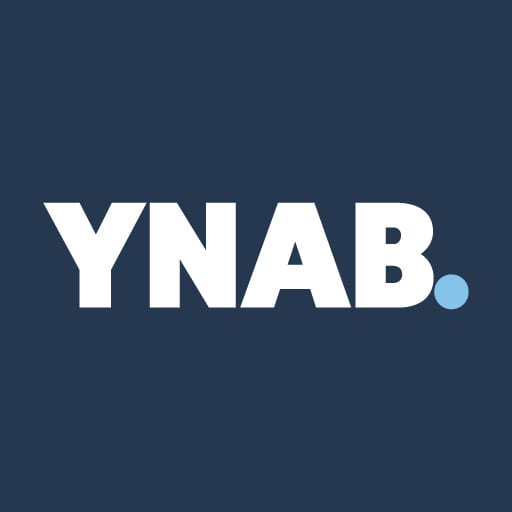
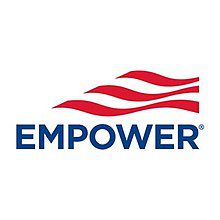
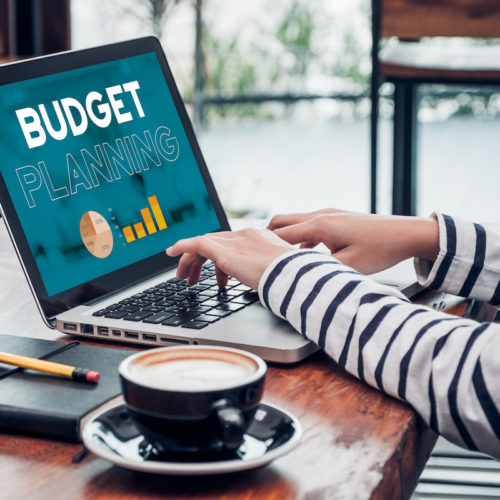


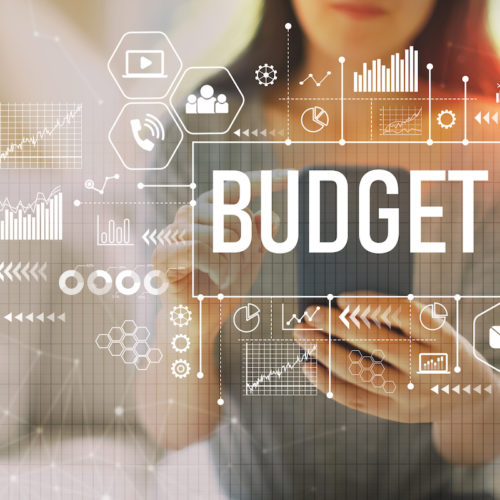
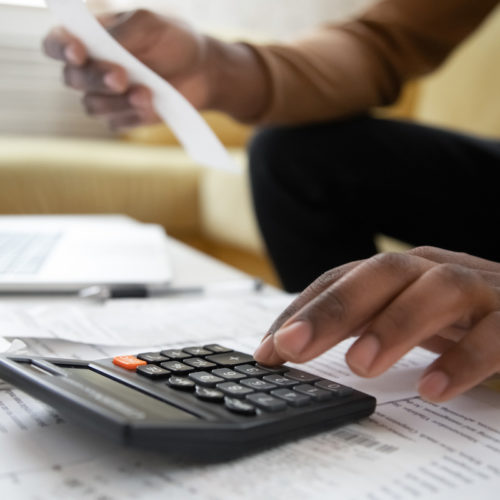
No comments yet. Add your own